Normal Newell, Sales Director at Ascertia partner Renaissance discusses the impact of eIDAS on the adoption of remote signing over the last year.
Multiple surveys have highlighted a gain in momentum in digital service transformation across all sectors since the start of 2020. Many C-level executives report that the pandemic's sudden onset has taken years off the duration of some digital projects. This survey from McKinsey & Company is typical of what many have said over the last year.
One area that has seen growth is the use of digital signing. Obviously, people could not meet for face-to-face meetings and many information workers were working from home.
This meant that the physical signing of contracts and other documents was difficult. There are anecdotal stories of couriers being used to take physical copies to people's homes to be signed. That's one way to solve the issue.
Another way to address the issue was the rapid adoption of trusted digital signing services. Ones that allowed documents to be signed online, but in a way that carried the same legal weight as physical signatures. This is what many organisations across Europe did.
Ascertia and the partner organisations who work with us to deliver trusted identity and electronic signing were able to deliver services to many businesses with this sudden need.
The rapid adoption of electronic signing since the start of 2020 has fed into and informed a two-year review and proposed update to the EU eIDAS regulations. eIDAS (electronic IDentification, Authentication and trust Services) is an EU-wide set of rules that member states have to adopt to provide trusted signing and other trust services.
Note that the UK adopted the eIDAS regulations as they then stood into UK law in 2019 as part of their withdrawal from the EU. The review came at an opportune time given the rapid uptake in eIDAS regulated services.
What did the review find?
Findings from the eIDAS Regulations Review
The EU published a report on the findings of the review of the current eIDAS regulations in June 2021. You can read the 73-page PDF report from the EU document library via this link.
The review highlights several points related to the unusual circumstances we've all faced recently. To quote from the report:
“Many stakeholders referred to how the COVID-19 pandemic had demonstrated the value of secure, remote identification for all to access public and private services.”
The authors also reported that they had found that the original 2014 eIDAS regulations had not achieved their potential across the member states. With only about 59% of citizens covered by valid eID schemes. They also say that the acceptance of notified eIDs at the level of member states and service providers is limited.
The findings also outline how the majority of the needs for eSigning and identity are in the private sector. However, the current eIDAS coverage isn’t great in these areas due to poor uptake.
Proposed Revisions to the eIDAS Regulations
Some of the significant changes proposed to the eIDAS regulations are:
- Make it mandatory for EU states to provide digital wallets - make sure that a digital wallet is available for all citizens. It should include items such as a driving license, passport, national ID card, online services identification and the ability to do digital agreement signing.
- Improvements to remote signature services - an update to the regulations to include references to Remote Qualified Signature Creation Devices and standards that govern them.
- Establish a common toolbox for EU digital identity - the EU Commission is to work with the EU Member States to establish a common toolbox by October 2022. It'll have the technical architecture, standards and guidelines for EU digital identity wallets.
- Accordance with other EU regulations - clean up any differences introduced between different EU rules and regulations in the years since eIDAS went into force.
- Adapt to the much-changed digital landscape - the digital landscape is very different than it was in 2014. The eIDAS regulations seek to reflect that fact and make much more use of technologies like smart mobile devices for eID and digital signing.
The full 73-page report has much more detail, of course. The regulations will go to the EU Commission for adoption and should be in force by June 2024.
Adapting to the updated eIDAS regulations
Electronic signing, and electronic ID in general, are here to stay. Even with the boost in uptake in the last two years, there is still more to do. Every EU citizen will be moving to electronic identity services over the next few years, using services regulated by the revised eIDAS rules. This will present a massive opportunity for IT and business service providers to deliver these eServices to their business clients and their customers.
Ascertia focuses on the digital signing and trust market. We can help all managed service providers (MSPs) to deliver electronic signatures and trust services.
We have products to provide digital signing and trust in the following areas:
- Remote signing
- Bulk signing
- Mobile signing
- Document approval & workflow
- Automated bulk invoice signing
- Tendering & submission signing
- Electronic validation & archiving
- Signature verification
- Email signing
Ascertia's consulting team are experts in this field. They are available to provide help and training to ensure that the best solutions get deployed. The team can also ensure these solutions are easy to maintain and manage over time. We can also ensure that you use the latest eIDAS regulations as the proposed changes move towards regulatory approval.
Renaissance partners with Ascertia to provide electronic signature and identification services for MSPs and others in Ireland. Contact us today to find out more.


